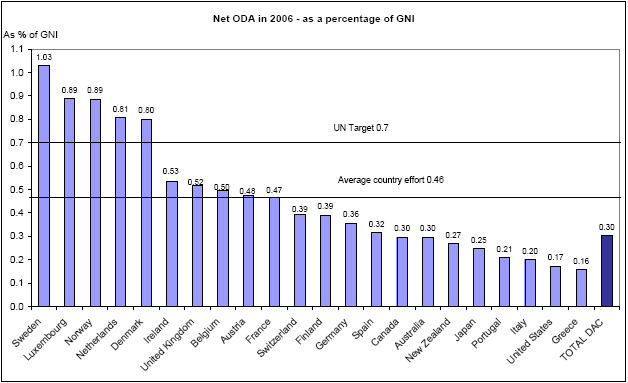In Afghanistan, violent crime and extortion (e.g., in the form of official shakedowns and roadblocks set up by various categories of land pirates) are among the central problems faced by farmers and others trying to earn a living. Those problems, in turn, are greatly worsened by the low pay and consequent low morale of the police forces, the army, and such related services as border guards.
That raises an obvious question: Why don’t all the countries interested in building a stable and relatively prosperous Afghanistan help the government out by subsidizing the pay of the police and the army? The same question applies, though not always with equal force, through much of the developing world. It would seem that a moderately honest police force ought to deserve a very high priority on the list of development tasks, and even moderate honesty is not consistent with salaries too low to support a family. The Washington Consensus put great emphasis on “getting prices right,” but little emphasis on getting civil service salaries right.
With respect to the police and the army (though not, for example, tax collection agencies) it turns out that there is at least a partial answer to that question.
The Development Assistance Committee (DAC) of the OECD compiles statistics on “Official Development Assistance” as a percentage of a donor nation’s GDP, against a UN target of 0.7%. That produces the familiar graphic below:

The DAC defines ODA as:
Flows of official financing administered with the promotion of the economic development and welfare of developing countries as the main objective, and which are concessional in character with a grant element of at least 25 percent (using a fixed 10 percent rate of discount). By convention, ODA flows comprise contributions of donor government agencies, at all levels, to developing countries (“bilateral ODA”) and to multilateral institutions. ODA receipts comprise disbursements by bilateral donors and multilateral institutions.
This definition is intended to distinguish “development assistance” from “security assistance,” preventing donors, especially the U.S. but also Russia and China, from getting “development assistance” credit for buying friendly generals expensive toys. Fighter planes don’t build societies.
But the police count as “security forces,” so aid to the police is “security assistance,” and therefore not, as it is said, “DAC-able.” So giving money for worthless prestige projects counts, and giving money for essential public safety doesn’t count.
Which proves, yet again, that what seem like mundane decisions about data collection and analyiss can have important real-world impacts.
Given that the police and the army can be tools of oppression as well as guarantors of civil peace, it’s not hard to understand the prejudice of the development community against anything with a “security” element to it. (Back when I was at the Kennedy School, I discovered that the charter of the Harvard Institute on International Development forbade any engagement in crime-control projects.) But economic development demands a modicum of honest law enforcement. Time to reconsider the rules?




